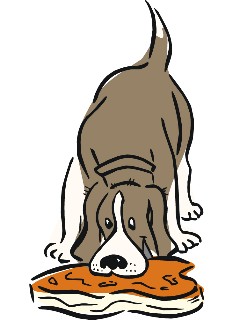In last week's parsha, we find: "and meat in the field, trefah, you shall not eat; you shall throw it to the dog" (Shemos 22:30). The Mechilta states: "The verse teaches you that Hashem does not withhold any creature's reward, as we are told: 'and to all the children of Israel a dog did not bark." Hashem said, 'Give him his reward." As reward for their silence, the dogs are to be fed trefah meat.
First of all, Klal Yisroel would still have left Mitzrayim had the dogs barked. Why would there be an inyan to express appreciation to dogs? Second of all, the dogs in the world today have nothing to do with the dogs that didn't bark then. Why would there be a mitzvah to give dogs the treife meat today in our times to thank the dogs that descended thousands of years from those in Mitzrayim?
Last year, the Rebbe, shlit"a, expounded upon three ideas that we can learn from this. Here they are in short:
The first is that we tend to forget the extent of Hashem's intimate attention to every molecule and detail of our lives. Even something so small and inconsequential as the dogs staying quiet is orchestrated by Hashem for our good and comfort.
The second is that living gratefully is something we find exceedingly difficult to do in today's society, both between us and Hashem as well as between people. An extreme example such as this can help one to remember how grateful he must feel towards those who are actually in his life.
Thirdly, many people think there are two separate spheres of living: spirituality on one side, and then there is the mundane and pedestrian on the other. This is not true. As long as we are breathing, every single moment offers us an opportunity to relate to Hashem, to connect with Him or to distance ourselves from Him. Taking out the garbage, even taking treife meat to a dog, can still be part of Divine service. We must not dismiss any moment without first incorporating it into the fabric of holiness and spirituality.
If you enjoyed this post, get free updates by email or RSS.


No comments:
Post a Comment